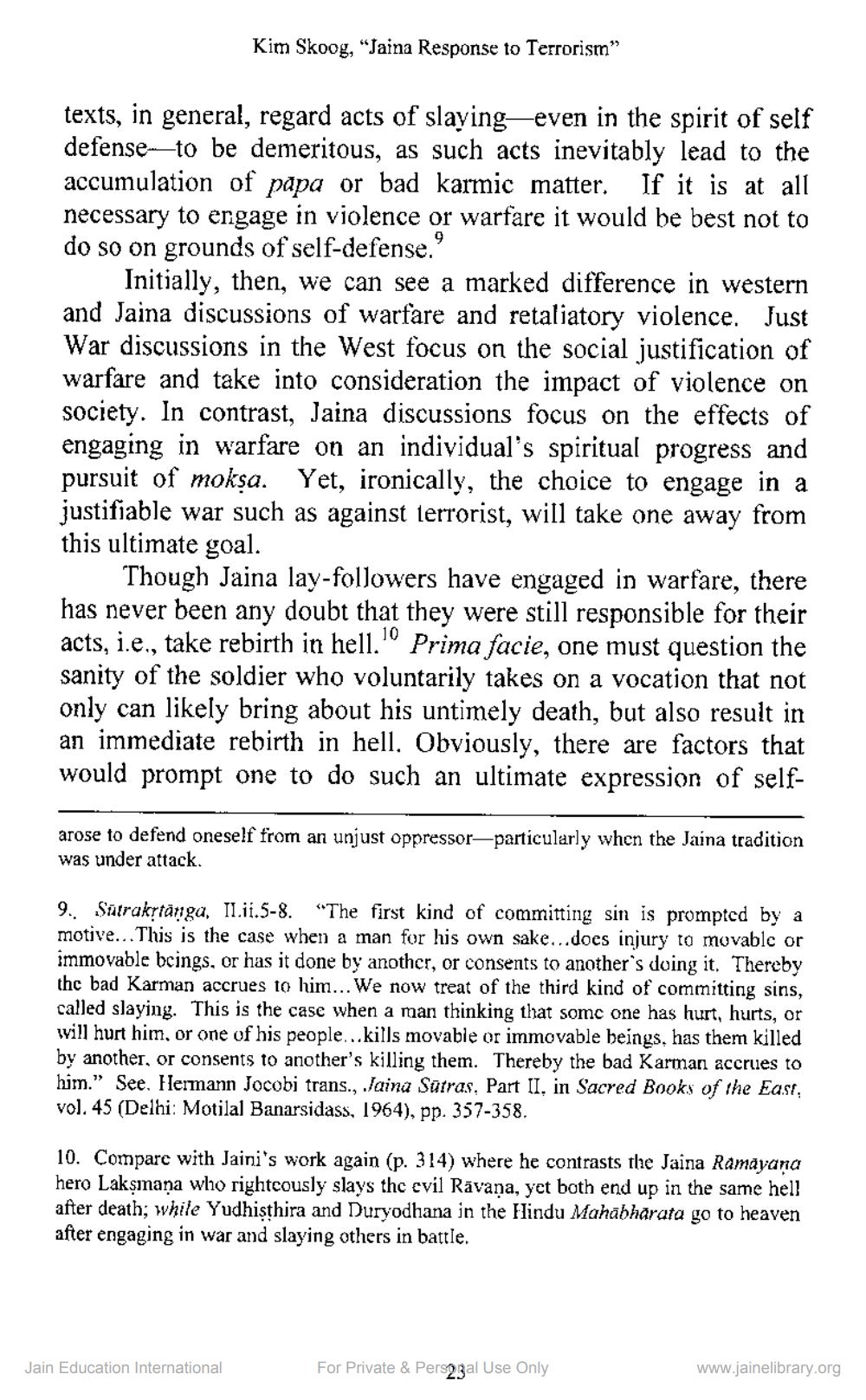Book Title: Jaina Response to Terrorism Author(s): Kim Scoog Publisher: Z_Lessons_of_Ahimsa_and_Anekanta_for_Contemporary_Life_014006.pdf View full book textPage 6
________________ Kim Skoog, “Jaina Response to Terrorism" texts, in general, regard acts of slaying—even in the spirit of self defense to be demeritous, as such acts inevitably lead to the accumulation of papa or bad karmic matter. If it is at all necessary to engage in violence or warfare it would be best not to do so on grounds of self-defense. Initially, then, we can see a marked difference in western and Jaina discussions of warfare and retaliatory violence. Just War discussions in the West focus on the social justification of warfare and take into consideration the impact of violence on society. In contrast, Jaina discussions focus on the effects of engaging in warfare on an individual's spiritual progress and pursuit of moksa. Yet, ironically, the choice to engage in a justifiable war such as against terrorist, will take one away from this ultimate goal. Though Jaina lay-followers have engaged in warfare, there has never been any doubt that they were still responsible for their acts, i.e., take rebirth in hell." Prima facie, one must question the sanity of the soldier who voluntarily takes on a vocation that not only can likely bring about his untimely death, but also result in an immediate rebirth in hell. Obviously, there are factors that would prompt one to do such an ultimate expression of self arose to defend oneself from an unjust oppressor-particularly when the Jaina tradition was under attack 9. Sätrakstānga, ILi1.5-8. “The first kind of committing sin is prompted by a motive... This is the case when a man for his own sake...does injury to movablc or immovable beings, or has it done by another, or consents to another's doing it. Thereby the bad Karman accrues to him... We now treat of the third kind of committing sins, called slaying. This is the case when a man thinking that somc one has hurt, hurts, or will hurt him, or one of his people...kills movable or immovable beings, has them killed by another, or consents to another's killing them. Thereby the bad Karman accrues to him." See. Hermann Jocobi trans., Jaina Sūtras, Part II. in Sacred Books of the East, vol. 45 (Delhi: Motilal Banarsidass, 1964), pp. 357-358. 10. Compare with Jaini's work again (p. 314) where he contrasts the Jaina Ramayana hero Laksmana who rightcously slays thc evil Rāvana, yet both end up in the same hell after death; while Yudhisthira and Duryodhana in the Hindu Mahabharata go to heaven after engaging in war and slaying others in battle, Jain Education International For Private & Pers23al Use Only www.jainelibrary.orgPage Navigation
1 ... 4 5 6 7 8 9 10 11 12 13 14 15 16 17
